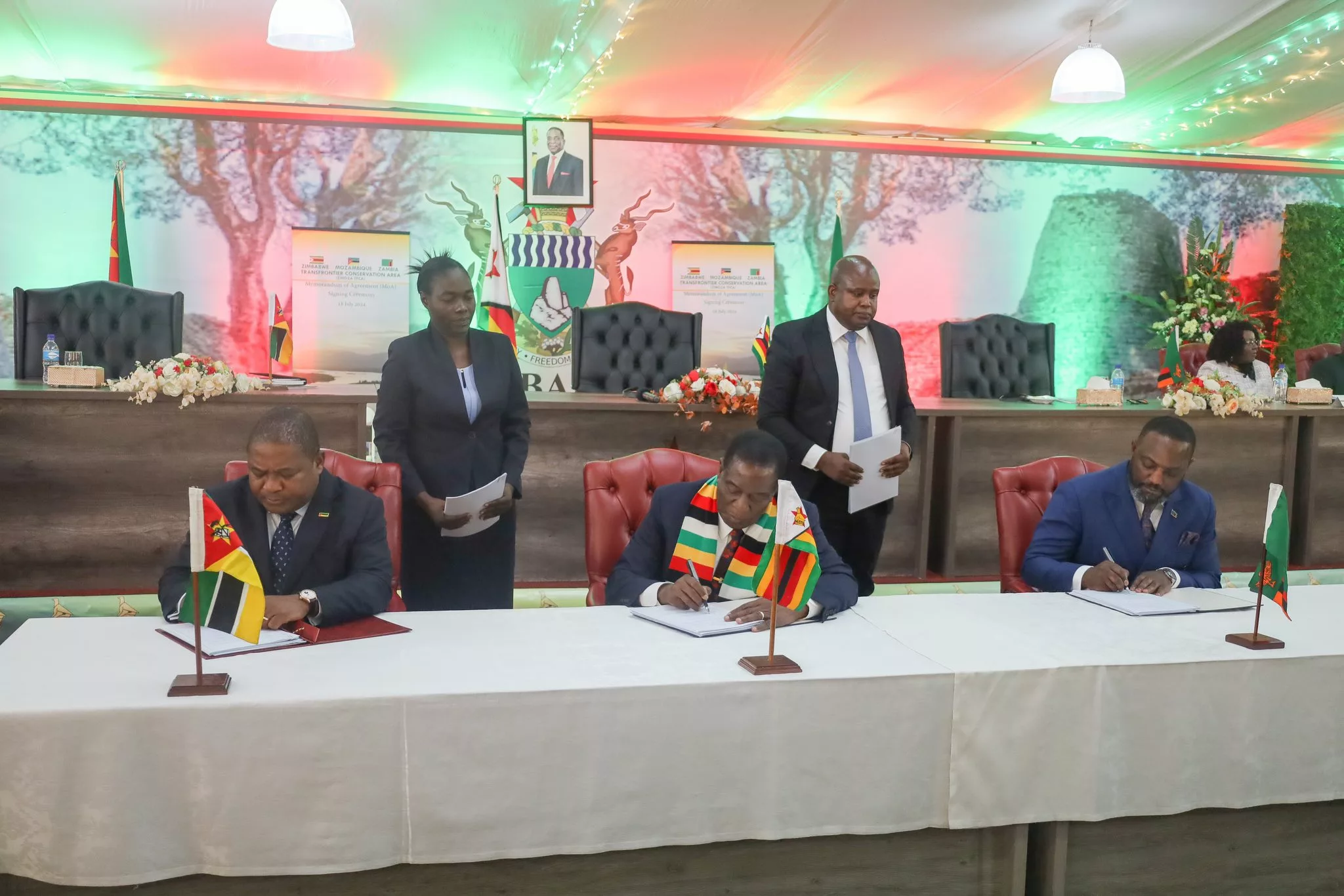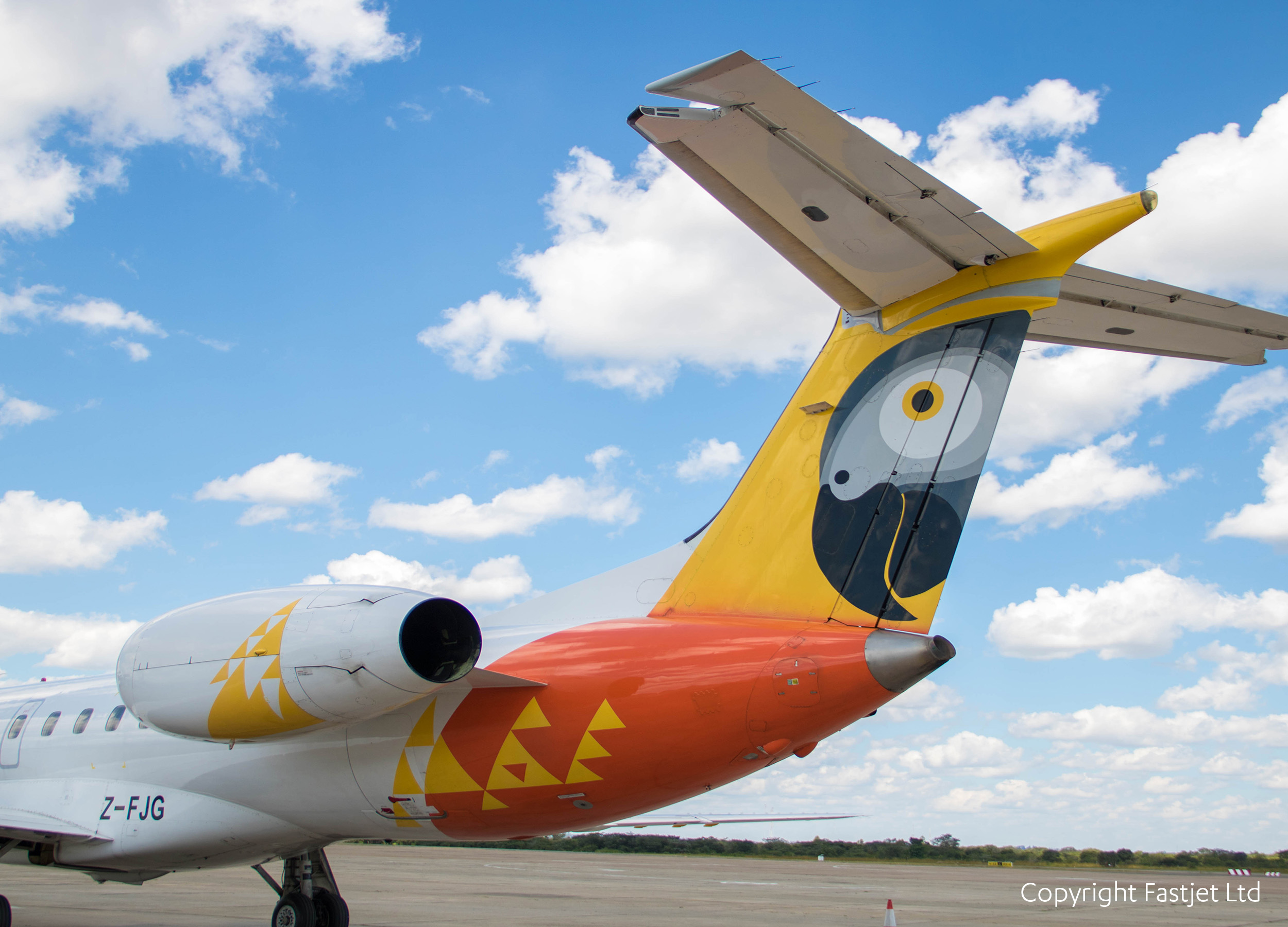|
Getting your Trinity Audio player ready...
|
The signing of the Zimbabwe, Mozambique, and Zambia (ZIMOZA) Transfrontier Conservation Area (TFCA) by His Excellency President Dr. Emmerson Mnangagwa of Zimbabwe, His Excellency Filipe Nyusi of Mozambique, and the Honourable Rodney Sikumba, Zambian Minister of Tourism signifies a commitment to regional cooperation to enhance environmental stewardship.
The agreement was signed yesterday in Harare and was witnessed by representatives of the Southern African Development Community (SADC)-GIZ Joint Action EU NaturAfrica/GIZ C-NRM Programme who are working with SADC and the member states to support the development and promotion of the TFCAs.
In his speech, President Mnangagwa reiterated the importance of TFCAs in communities.
“The ZIMOZA TCA will play a crucial role in providing solutions to the challenges faced by these communities. By mitigating human-wildlife conflicts, we can ensure a safer and more sustainable environment for our people,” President Mnangagwa said.
The ZIMOZA TFCA Memorandum of Agreement aims to foster sustainable development, enhance wildlife habitat protection, and promote cross-border cooperation. It is expected to create new opportunities for local populations, particularly in tourism and economic growth while ensuring the preservation of the region’s natural heritage.
The historic signing represents a collective commitment by Zimbabwe, Mozambique, and Zambia to work together in preserving their shared environment and improving the livelihoods of their people.
Transfrontier conservation areas (TFCAs) offer several benefits, including:
Habitat conservation: TFCAs protect larger areas of habitat, enhancing biodiversity conservation.
Wildlife migration corridors: TFCAs facilitate wildlife movement across borders, maintaining ecosystem balance.
Coordinated management: TFCAs promote collaborative management and sharing of resources among countries.
Sustainable tourism: TFCAs support eco-tourism, generating income and promoting conservation.
Community engagement: TFCAs involve local communities in conservation efforts, fostering cooperation and benefits sharing.
Transboundary research: TFCAs facilitate international scientific collaboration and knowledge sharing.
Conflict resolution: TFCAs promote peaceful resolution of conflicts among countries, fostering regional stability.
Economic benefits: TFCAs generate income through tourism, job creation, and sustainable resource management.
Cultural exchange: TFCAs facilitate cultural exchange and understanding among countries and communities.
Global recognition: TFCAs can receive international recognition and support, enhancing their conservation impact.
By transcending national borders, TFCAs address conservation challenges more effectively, promoting regional cooperation and sustainable development.






